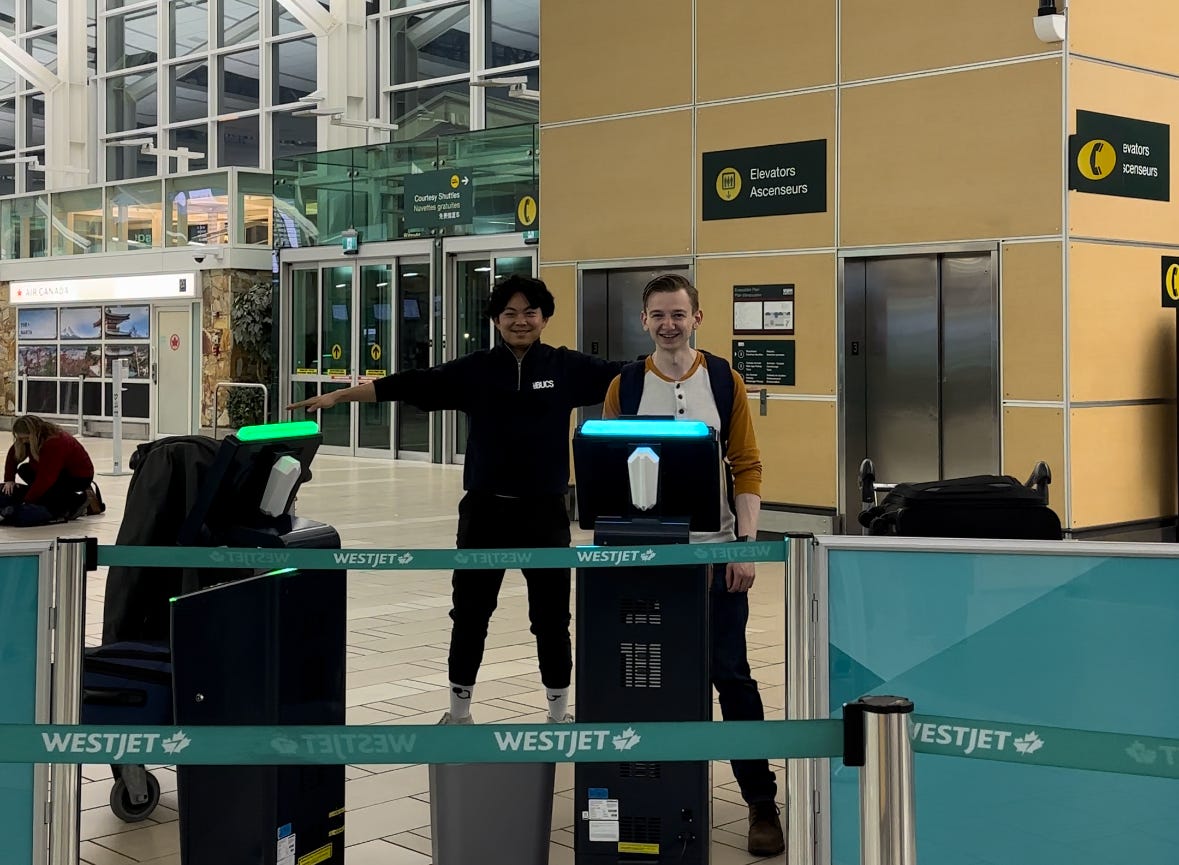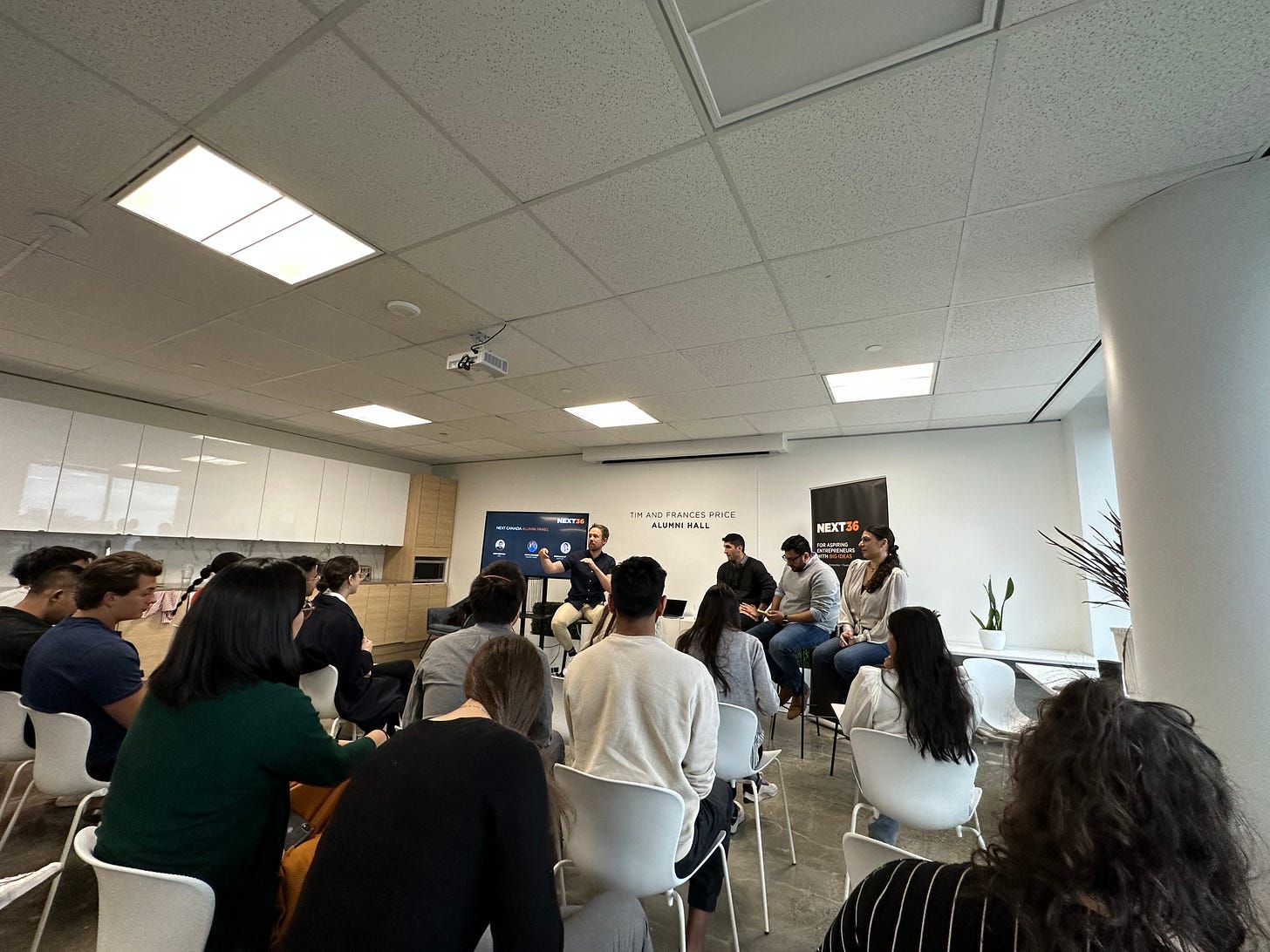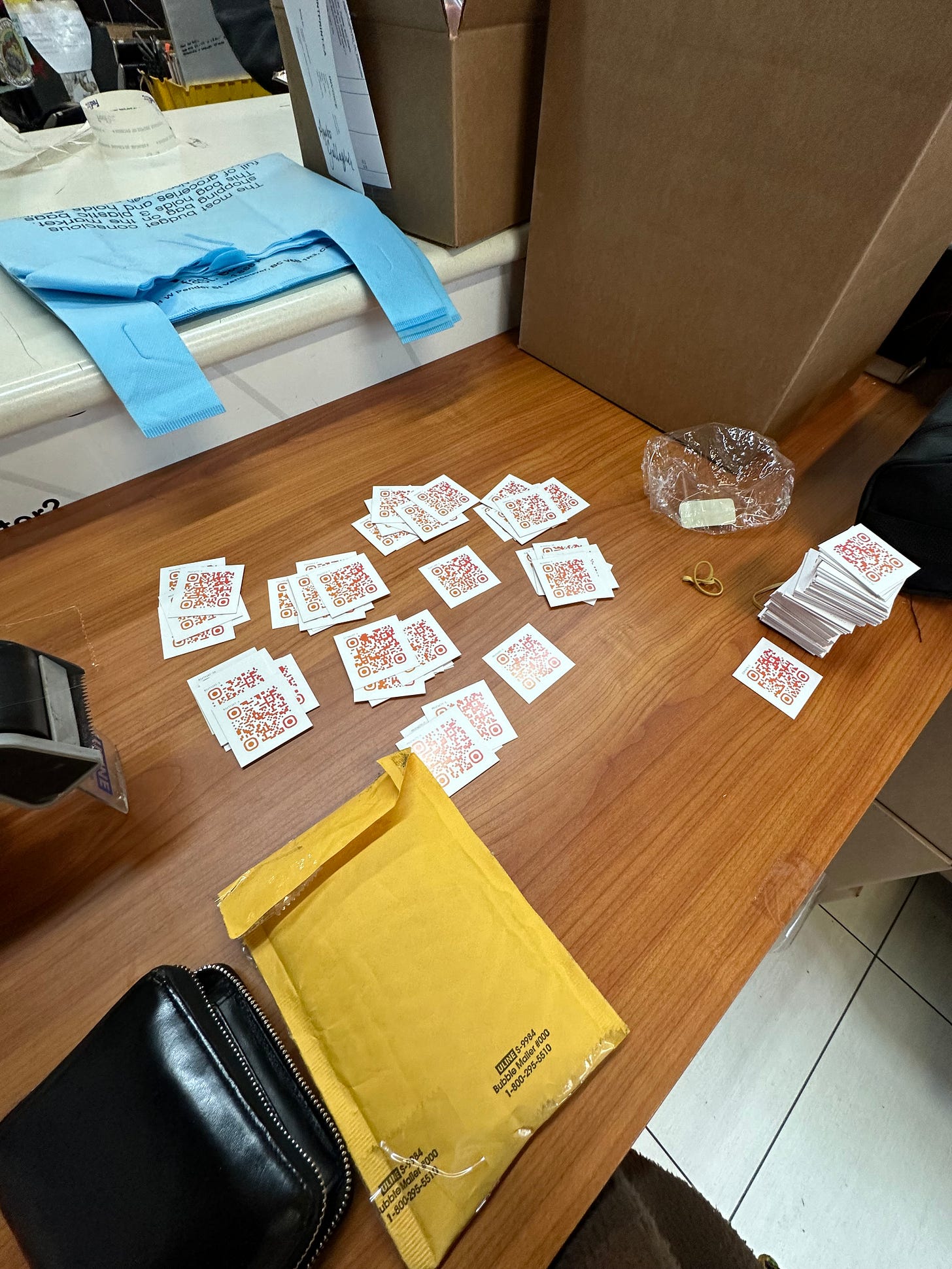Ready, Set, Go!
The move to Toronto and a new use case for Prompt Cards.
This past week has been intense to say the least. Scott, Kai, and I took a red-eye flight Monday evening and landed in Toronto on Tuesday at 7:00 AM for our in-person orientation for NEXT36 at the downtown office. We spent the day breaking ice, attending workshops, pitching to mentors, and chatting with program alum—all while running on 3 hours of sleep (or 9 hours between the three of us)!
Here is what we’ve been up to lately:
Small Wins for Prompt Cards
First Paying Customer!
Thanks to these blog posts, we found our first paying customer for Prompt Cards (our phygital business card alternative). We’ve shown Prompt Cards off to dozens of people, but it’s more important to us to focus on feedback from paying customers so we can grow a sustainable business.
CardCard PrintPrint
We’ve upgraded from printing our cards at Staples (see our last post) to now working with a local printing company (less overhead, better print quality, time savings, etc). It was difficult finding a shop that would handle our order — having a unique QR code printed on the back of each card — but after a lot of calling, negotiating, and chatting around, we finally landed one.
Sorting the cards because they all came out of order 😞
A New Idea: Prompt Referrals
Inspiration
When Kai and I were chatting with bike shops—and other local businesses that could be customers of ours—a new use case for our Prompt cards came to mind. At each shop, we asked every owner what their biggest problem was with operating their business.
Since the pandemic, the bike industry has seen a massive surge in demand as a result of the lockdown, while simultaneously being short on supply because of operational issues overseas. As a result, bike shops experienced some of their most successful years in business while struggling to keep up with orders left, right and center. The second-hand bike market exploded.
Bike shops are still adapting to this new normal, and supply chain issues are still a reality.
One shop owner explained to us how a lot of potential customers will come into his store with a particular bike in mind. But, unfortunately, nine times out of ten, that bike will be out of stock or back ordered for the next year. This usually results in a lost sale because the customer is impatient, wanting a bike they can begin riding in the upcoming season.
Luckily, during the pandemic, he partnered with a local bike fitter.
Often, when people have a bike in mind they want to purchase it as a result of a really good promotion—a blog they read online or an Instagram influencer. But they don’t know if that bike will actually fit them.
So instead of turning customers away, he started referring them to the bike fitter for a “pre-fit” wherein they tested the customers in a handful of geometries and recommended bikes accordingly. Then, the bike fitter referred the customer back to the bike shop, completing the loop, and completing the sale.
Hearing this success story got us thinking about referrals for small businesses. In certain verticals—tourism, real estate, beauty, and wedding planning—businesses sometimes refer each other, which is a win for everyone involved.
We believe that the small business referral marketplace could be more efficient. Right now, referrals are hard to track or monetize. There is no existing framework or infrastructure in place.
Rather than trying to make in-person follow-ups more personal, we are now investigating how new businesses can find customers in the first place.
The Problem
One of the biggest challenges that solopreneurs and freelancers face is finding customers. It can be difficult to market themselves and stand out in all the noise, especially if they are just starting. Paid advertising requires significant upfront investment and digital marketing is more of an art than a science.
Yet there’s an alternative option: go to where your customers already are. By partnering with the businesses that already serve your target market, you won’t need to outspend your competition.
Our Focus
We want more new businesses to succeed if they provide a valuable service—not just for having deep pockets or being marketing experts. In this second iteration of Prompt, we aim to help new businesses acquire customers through referral partnerships with other businesses in their ecosystem.
The classic example is a new wedding photographer who has exhausted their entire list of Instagram followers who are having weddings anytime soon. Rather than outspending their competition in advertising, or making up some genius marketing campaign, they can turn to Prompt.
In our marketplace, we would partner this photographer with local event planners, dressmakers, and flower shops—the businesses that their potential customers are already at. When the flower shop, for example, has an upcoming wedding as a client for which they have built a strong relationship with, they could share a Prompt Card with their client to refer them to the new photographer with a 5% discount. When the customer buys the photographer’s services, they hand in the Prompt Card and the referral is marked as successful.
Everyone wins: the customer finds the services they need, the photographer gets a new customer, and the flower shop gets paid a commission from the photographer for the successful referral. Our business model would be to take a cut of each commission.
Rather than paying upfront for Google Adwords or Facebook Ads, new businesses and solopreneurs only need to pay after their customers arrive. We just send them the bill at the end of the month.
This is just one example of where Prompt can help businesses make the most out of their ecosystem. Ultimately, we help small businesses grow together by working with each other.
Stay tuned
During this initial product discovery period, we’re testing a lot of ideas until we land on one. Who knows where we’ll be next week!





